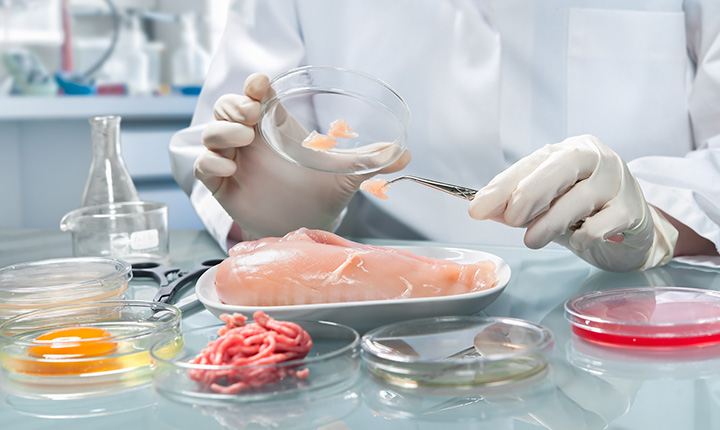FOOD*2420 - Introduction to Food Microbiology
Course Description

An introduction to the major groups of microorganisms important in foods is presented in this course, including microbial spoilage of food, food-borne illness, and food fermentations. Sources of contamination during production, processing and storage of foods and evaluation of food processing conditions used to control the presence and/or growth of microorganisms in foods are discussed.
Note: This course may be taken individually or as a part of a certificate program.
Learning Outcomes
By the end of the course, the learner should be able to:
- Identify the names and characteristics of microorganisms commonly found in foods;
- Describe how different factors in foods affect microbial growth and how this is applied to food preservation and/or production;
- Use predictive microbial growth programs with various food case studies to examine growth of food-borne pathogens and spoilage microbes;
- Outline the government role in maintaining food safety;
- Describe the approaches used in applying yeasts, molds and bacteria during food fermentations;
- Describe the characteristics of common food pathogens and explain how these can be used to aid investigations into food-borne illness outbreaks;
- Describe the principle methods used to detect and enumerate microorganisms in food and calculate the number of bacteria in a food product;
- Outline proper handling, preparation and storage practices for food safety;
- Discuss the merits of HACCP implementation in the food industry;
- Apply the sequential steps involved in devising HACCP plans to various food case studies;
- Conduct independent literature research;
- Formulate an informed opinion on food safety issues when presented with conflicting information; and
- Participate in online academic discussions, and assess peer contributions.
Course Topics
- How microbes work
- Microbial growth
- Food spoilage
- Fermentations
- Foodborne disease
- Enumeration and rapid detection techniques
- Control of microbial growth
- Hazard Analysis of Critical Control Points (HACCP)
Additional Requirements
Prerequisite(s): 1 of BIOL*1040, BIOL*1070, MICR*2420
Restriction(s): FOOD*3140, FOOD*3160, FOOD*3170. Not available to students registered in BBRM.FIM, BBRM.FIM:C, BSC.FOOD or BSC.FOOD:C majors.
Assessment
| Assessment Item | Weight |
|---|---|
| Hot Topic Discussions | 10% |
| Peer Assessments of Group Discussions | 10% |
| Online Midterm Exam | 30% |
| Assignment 1: Food Safety Training Presentation Report | 10% |
| Assignment 2: Unit Summary | 5% |
| Online Final Exam | 35% |
| Total | 100% |
Note: You are required to get a passing grade on the final exam in order to pass the course.
Note:
Additional Technical Requirements
This course will use the following:
- Respondus tool to invigilate one or more exams.
Please view the Technical Considerations.
Applies Towards the Following Certificates
- Certificate in Food Science : Required Courses
Technical Requirements
You are responsible for ensuring that your computer system meets the necessary system requirements. Use the browser check tool to ensure your browser settings are compatible and up to date (results will be displayed in a new browser window).
*Course details are subject to change.

